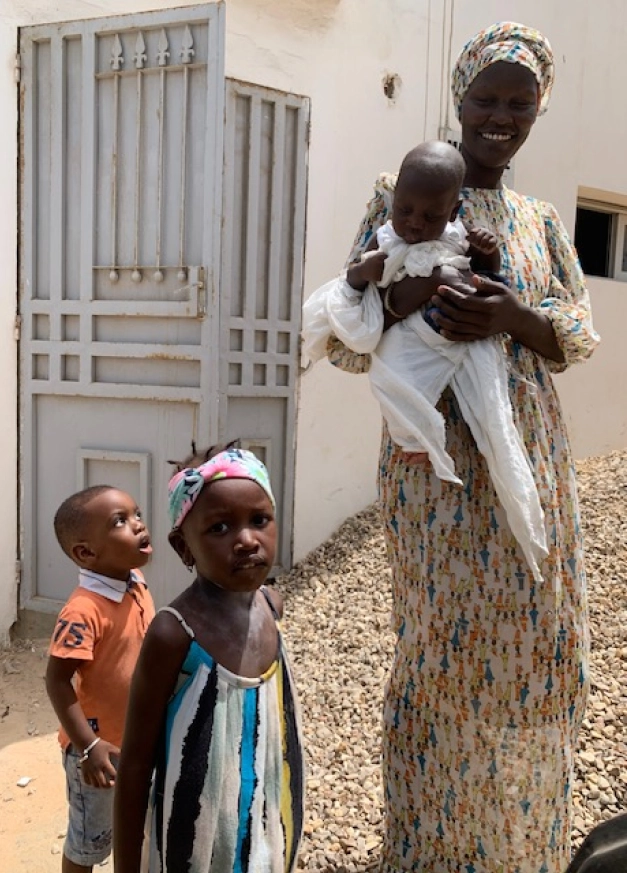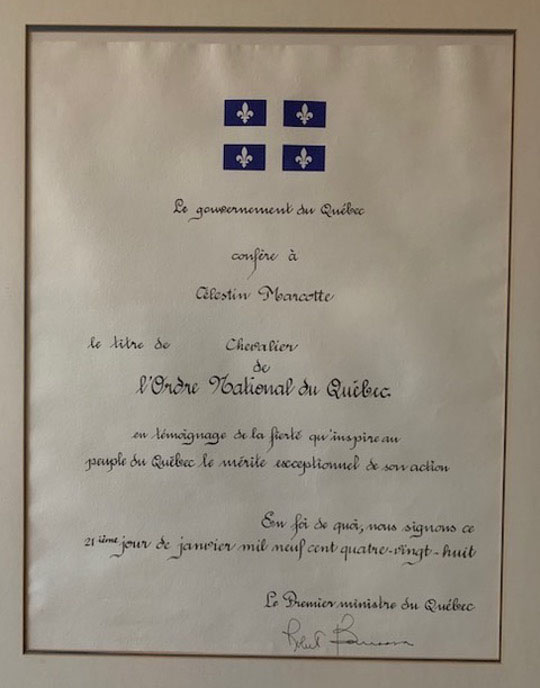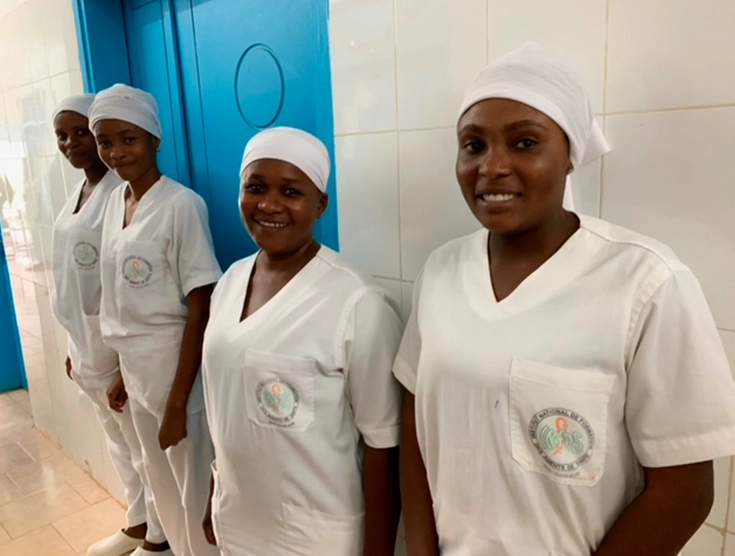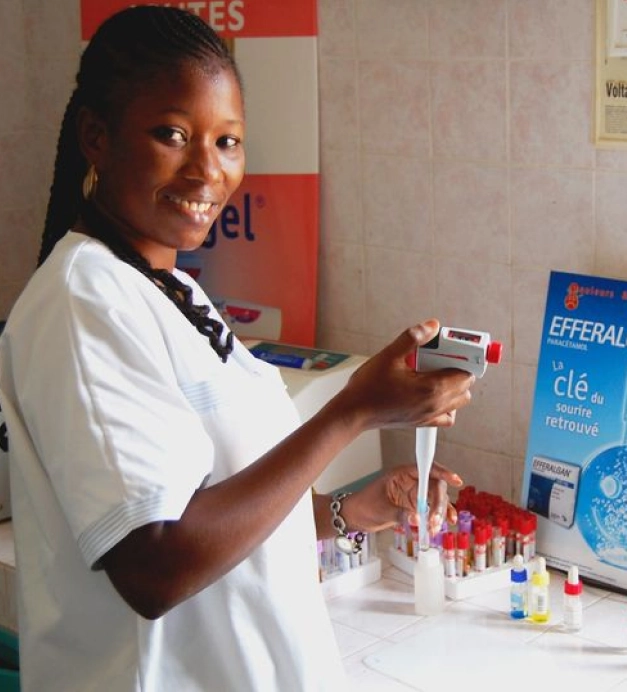About us

History
Established with an international solidarity approach, Collaboration Santé Internationale has adopted humanitarian cooperation practices for equitable access to healthcare.
To effectively and sustainably impact the health of vulnerable populations and reduce inequalities, government support is necessary through collective and coordinated action by health cooperation organizations.
The fundamental objective of CSI incorporates this vision, aiming for collaboration and broad participation in the development of strategies and actions in favor of upholding the universal right to health.
"The right to health is one of the human rights enshrined in the International Covenant on Civil and Political Rights (ICCPR), adopted by the UN General Assembly.
The 1948 Universal Declaration of Human Rights refers to health as an integral part of the right to an adequate standard of living (art. 25). The World Health Organization defines the right to health as a state of physical, mental and social well-being.

Collaboration Santé Internationale was founded in 1968 by a Capuchin, Father Célestin Marcotte, parish priest of Saint-Charles-de-Limoilou.
During a mission in Chad, the latter fell ill. He then benefits from the limited medicines available locally. Upon returning to Quebec, he quickly establishes the Quebec section of Assistance médicale internationale (AMI).
In 1975, AMI becomes Collaboration Santé Internationale, a non-profit organization. In its early days, the main activity of the organization consisted of preparing packages of medicines transported by missionaries or secular organizations.

Numerous distinctions have been awarded to Father Marcotte in recognition of his dedication, generosity and humanism, particularly through the achievements of CSI.
Father Marcotte passed away in 1990, but the mission of CSI remains very much alive.

PHOTO C
We are the only non-profit organization and international cooperation organization accredited since 1996 by the ministère de la Santé et des Services sociaux du Québec (MSSS) to recover and give a second useful life to surplus from the healthcare system for humanitarian purposes.
The ministère des Relations internationales et de la Francophonie (MRIF) also recognizes CSI's expertise and quality of services in sending medical and paramedical equipment by supporting its cooperation projects under the "Nouveau Québec sans frontières" program.

Since its foundation, CSI has sent the equivalent of $250 million in medical equipment, supplies and medicines to support hundreds of health centers in over 90 countries.

MISSION
Collaboration Santé Internationale responds to the needs of health centers in developing countries and communities requiring urgent action due to unforeseeable events, by sharing knowledge and providing medicines, medical supplies and equipment in a sustainable development approach.

VISION
Collaboration Santé Internationale aims to be recognized as the Canadian leader in innovation and reuse of medical equipment for humanitarian purposes and sustainable development, with a view to improving the global health of populations in vulnerable situations.

VALUES
Cooperation
CSI was born of the desire to help and make basic healthcare accessible to all.
Integrity
CSI acts ethically in order to be recognized as a reliable and consistent partner.
Efficiency
CSI is committed to responding rapidly to the healthcare needs of its partners.
Impact
CSI takes concrete actions whose results and effects are beneficial to health as well as the environment in the short term while structuring them in the long term.
Liability
CSI integrates the application of sustainable development principles (ESG) into its practices.

CODE OF
CONDUCT
Our reputation as a reliable partner in international cooperation is based on more than 55 years of existence, and on maintaining rigorous standards of integrity and professional conduct in our relations with all our partners, donors and sponsors.
About us
history
Established with an international solidarity approach, Collaboration Santé Internationale has adopted humanitarian cooperation practices for equitable access to healthcare.
To effectively and sustainably impact the health of vulnerable populations and reduce inequalities, government support is necessary through collective and coordinated action by health cooperation organizations.
The fundamental objective of CSI incorporates this vision, aiming for collaboration and broad participation in the development of strategies and actions in favor of upholding the universal right to health.

"The right to health is one of the human rights enshrined in the International Covenant on Civil and Political Rights (ICCPR), adopted by the UN General Assembly.
The 1948 Universal Declaration of Human Rights refers to health as an integral part of the right to an adequate standard of living (art. 25). The World Health Organization defines the right to health as a state of physical, mental and social well-being.
Collaboration Santé Internationale was founded in 1968 by a Capuchin, Father Célestin Marcotte, parish priest of Saint-Charles-de-Limoilou.
During a mission in Chad, the latter fell ill. He then benefits from the limited medicines available locally. Upon returning to Quebec, he quickly establishes the Quebec section of Assistance médicale internationale (AMI).
In 1975, AMI becomes Collaboration Santé Internationale, a non-profit organization. In its early days, the main activity of the organization consisted of preparing packages of medicines transported by missionaries or secular organizations.

Numerous distinctions have been awarded to Father Marcotte in recognition of his dedication, generosity and humanism, particularly through the achievements of CSI.
Father Marcotte passed away in 1990, but the mission of CSI remains very much alive.

We are the only non-profit organization and international cooperation organization accredited since 1996 by the ministère de la Santé et des Services sociaux du Québec (MSSS) to recover and give a second useful life to surplus from the healthcare system for humanitarian purposes.
The ministère des Relations internationales et de la Francophonie (MRIF) also recognizes CSI's expertise and quality of services in sending medical and paramedical equipment by supporting its cooperation projects under the "Nouveau Québec sans frontières" program.

Since its foundation, CSI has sent the equivalent of $250 million in medical equipment, supplies and medicines to support hundreds of health centers in over 90 countries.

MISSION
Collaboration Santé Internationale responds to the needs of health centers in developing countries and communities requiring urgent action due to unforeseeable events, by sharing knowledge and providing medicines, medical supplies and equipment in a sustainable development approach.

VISION
Collaboration Santé Internationale aims to be recognized as the Canadian leader in innovation and reuse of medical equipment for humanitarian purposes and sustainable development, with a view to improving the global health of populations in vulnerable situations.

VALUES
Cooperation
CSI was born of the desire to help and make basic healthcare accessible to all.
Integrity
CSI acts ethically in order to be recognized as a reliable and consistent partner.
Efficiency
CSI is committed to responding rapidly to the healthcare needs of its partners.
Impact
CSI takes concrete actions whose results and effects are beneficial to health as well as the environment in the short term while structuring them in the long term.
Liability
CSI integrates the application of sustainable development principles (ESG) into its practices.

OUR CODE OF CONDUCT
Our reputation as a reliable partner in international cooperation is based on more than 55 years of existence, and on maintaining rigorous standards of integrity and professional conduct in our relations with all our partners, donors and sponsors.

